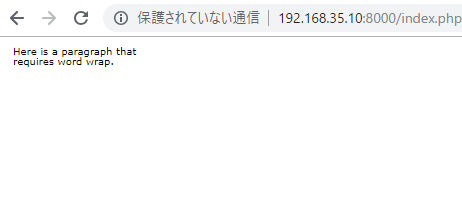SVG elements make it possible to include external XML namespaces with graphic content rendered by different user agents. External graphic content included is subject to SVG conversion and composition.
<svg width="400px" height="300px" viewBox="0 0 400 300" xmlns="http://www.w3.org/2000/svg"> <desc>The svg tag can write code and draw an image. Compared with bitmap data such as JPEG and PNG, even if it is enlarged, it can be displayed in a beautiful state without blurring.</desc> <switch> <foreignObject width="100" height="50" requiredExtensions="http://www.w3.org/1999/xhtml"> <body xmlns="http://www.w3.org/1999/xhtml"> <p>Here is a paragraph that requires word wrap</p> </body> </foreignObject> <text font-size="10" font-family="Verdana"> <tspan x="10" y="10">Here is a paragraph that</tspan> <tspan x="10" y="20">requires word wrap.</tspan> </text> </switch> </svg>

<svg width="960px" height="1280px" viewBox="0 0 960 1280" xmlns="http://www.w3.org/2000/svg">
<style>
h1 {
color:red;
}
</style>
<g>
<foreignObject x="0" y="0" width="100%" height="100%" requiredExtensions="http://www.w3.org/1999/xhtml">
<body xmlns="http://www.w3.org/1999/xhtml">
<p>Hello, world!</p>
</body>
</foreignObject>
</g>
</svg>
ん? どういこと?
